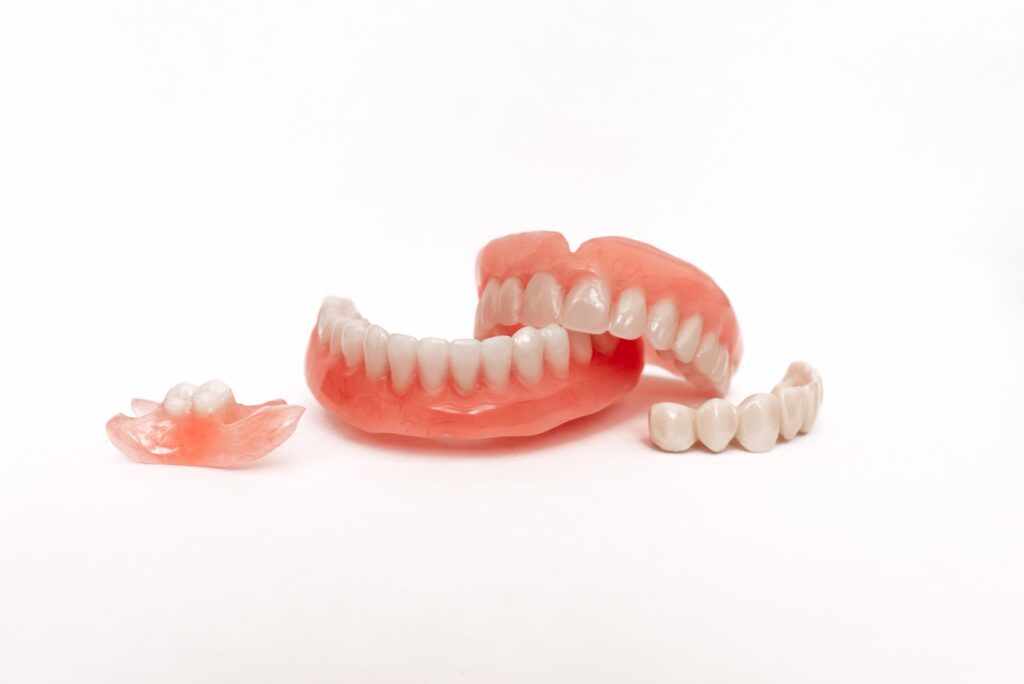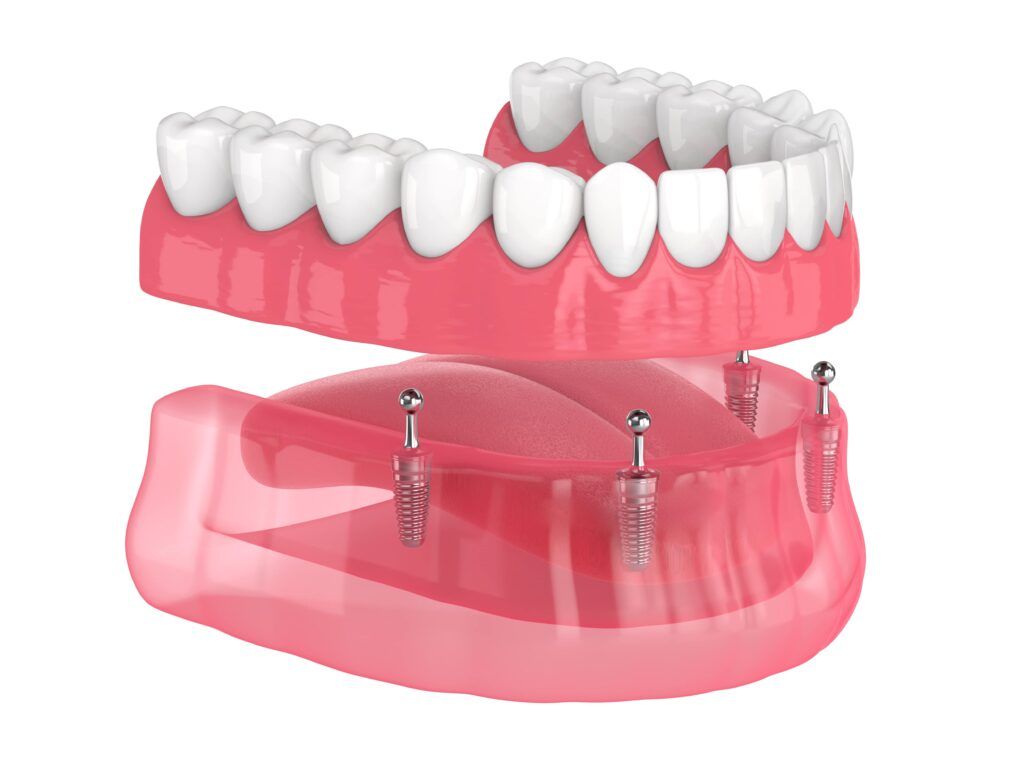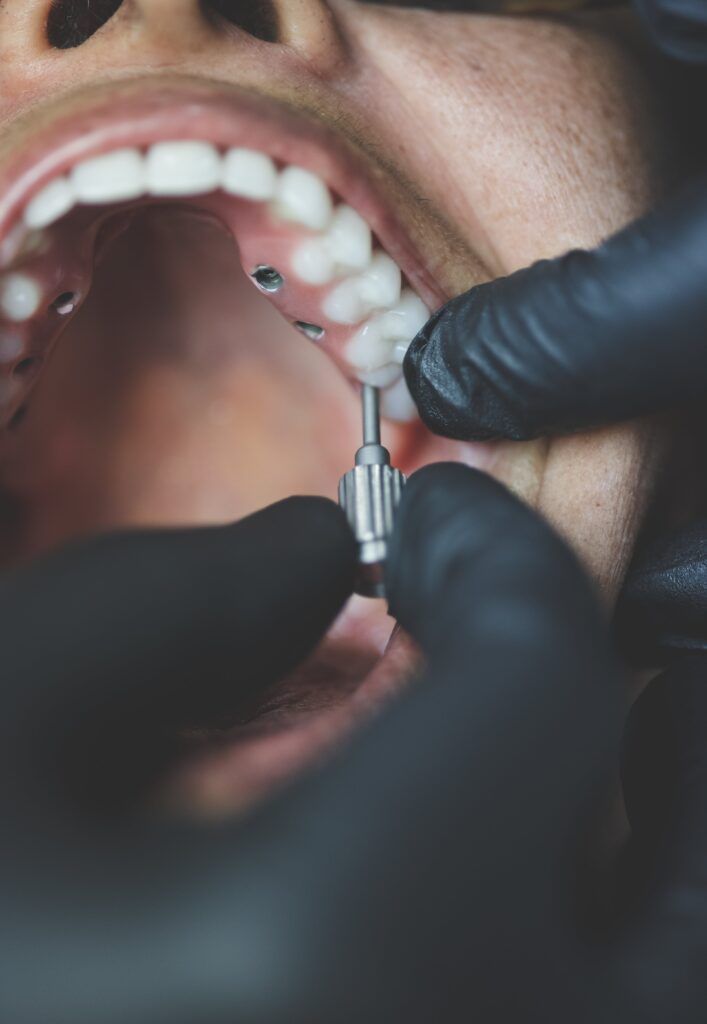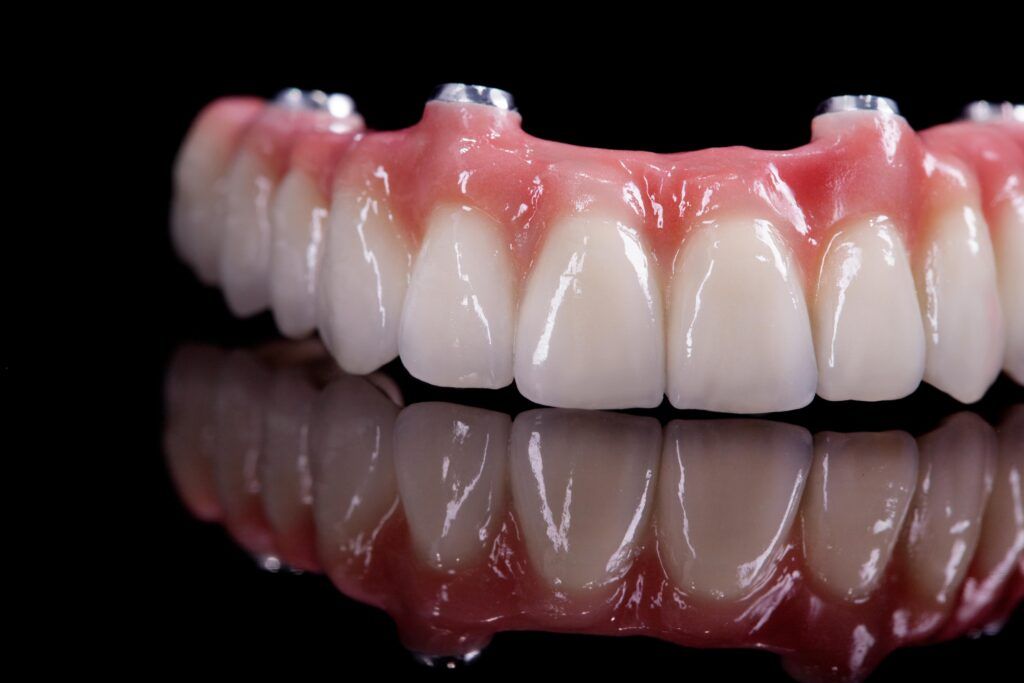When it comes to replacing missing teeth, dentures have long been a popular choice. However, traditional dentures come with their fair share of challenges and discomforts, from slipping and sliding to difficulty eating certain foods. Fortunately, modern dentistry has brought us a game-changing solution: implant-supported dentures. This innovative approach combines the stability of dental implants with the convenience of dentures, offering patients a reliable and comfortable way to restore their smile. In this blog, we’ll explore the world of implant-supported dentures and why they’re considered the best of both worlds.
Understanding the Basics
To grasp the benefits of implant-supported dentures, it’s essential to first understand how they work in comparison to traditional dentures. While both traditional dentures and implant-supported dentures can be used to replace multiple missing teeth, they differ significantly in their method of anchorage.

Traditional Dentures
Traditional dentures are removable dental appliances designed to sit on top of the gums. They rely primarily on suction, adhesion, and gravity to stay in place. When you place them in your mouth, they adhere to the gum tissue through natural suction and the use of denture adhesives.The fit and retention of traditional dentures can vary from person to person and may require periodic adjustments.
Implant-Supported Dentures
Implant-supported dentures, as the name suggests, are anchored in place by dental implants. Dental implants are small titanium posts surgically placed into the jawbone. They serve as artificial tooth roots, providing a stable foundation for the dentures. After implant placement, the jawbone gradually fuses or integrates with the implant surface through a process called osseointegration. This integration creates a strong and permanent bond, similar to the relationship between natural teeth and the jawbone. Once the dental implants have fully integrated, custom-made dentures are attached to them using connectors or abutments. These attachments snap onto the implants, creating a secure and stable fit that minimizes movement or slippage.
Types of Implant-Supported Dentures
There are different types of implant-supported dentures, each designed to meet specific needs and preferences of patients. The main types of implant-supported dentures include:
Fixed Implant-Supported Dentures (Fixed Hybrid Dentures):
These dentures are permanently fixed in the mouth and can only be removed by a dentist. Fixed implant-supported dentures are typically supported by 4 to 6 dental implants per arch (upper or lower jaw). They offer the highest level of stability and functionality and closely mimic the feel and function of natural teeth. They are an excellent choice for patients who want a more permanent solution.

Removable Implant-Supported Dentures:
Removable implant-supported dentures are also known as implant overdentures. They are designed to be removed by the patient for cleaning and maintenance but securely attach to dental implants when in use. These dentures can be attached using various systems, such as ball-retained or bar-retained attachments, which provide stability and support. Removable implant-supported dentures offer a balance between the convenience of removable dentures and the stability of fixed options.
All-on-4 and All-on-6 Dentures:
These are specific types of implant-supported dentures that use fewer implants than traditional implant-supported dentures. “All-on-4” refers to the use of four dental implants to support a full arch of teeth (either upper or lower), while “All-on-6” uses six implants. These options are often chosen for their cost-effectiveness and reduced surgical complexity compared to traditional implant-supported dentures.
Implant-Supported Partial Dentures:
These are implant-supported dentures used when only some of the teeth in an arch need replacement. They offer increased stability and comfort compared to traditional removable partial dentures.
Implant-Supported Bar-Retained Dentures:
In this type of denture, a metal bar is attached to the dental implants. The denture is then attached to the bar using clips or other connectors. This design offers stability and support while still allowing for easy removal for cleaning and maintenance.
The choice of which type of implant-supported denture is best for an individual depends on various factors, including the patient’s oral health, the number and condition of their remaining teeth, their budget, and their personal preferences. A consultation with a dental implant dentist can help determine the most suitable implant-supported denture option for a specific case.
Benefits of Implant-Suported Dentures
Stability and Security
One of the primary advantages of implant-supported dentures is their remarkable stability. Traditional dentures can shift or come loose while eating or speaking, causing discomfort and embarrassment. In contrast, implant-supported dentures stay firmly in place, eliminating the need for adhesives and allowing you to eat, speak, and smile with confidence. This increased stability significantly improves your quality of life and can boost your self-esteem.

Improved Chewing Functionality
Chewing with traditional dentures can be a real challenge, as they lack the biting force and stability of natural teeth. Many denture wearers are forced to avoid certain foods or modify their diets to accommodate their dental appliances. Implant-supported dentures, on the other hand, restore nearly all of your natural biting and chewing capabilities. With this improved functionality, you can once again enjoy a diverse and nutritious diet without restrictions.
Preserving Bone Health
Another crucial benefit of implant-supported dentures is their ability to preserve bone health. When teeth are lost, the jawbone begins to deteriorate over time due to the absence of natural tooth roots. Dental implants mimic these roots, stimulating the bone and preventing resorption. This ensures that your facial structure remains intact, preventing the sunken appearance that can occur with traditional dentures.
Enhanced Comfort and Convenience
Implant-supported dentures are not only more stable but also more comfortable than traditional dentures. They do not rub against the gums or create pressure points, reducing the risk of sore spots and irritation. Additionally, you won’t need to remove them for cleaning or worry about messy adhesives, making them more convenient for daily use.
Long-Term Durability
Implant-supported dentures are built to last. With proper care and maintenance, they can provide a long-term solution for replacing missing teeth. Unlike traditional dentures that may require frequent adjustments or replacements, implant-supported dentures offer enduring stability and comfort.
Conclusion
Implant-supported dentures represent a remarkable advancement in dental technology, combining the stability of dental implants with the convenience of dentures. With their improved stability, chewing functionality, bone preservation, and long-term durability, they truly offer the best of both worlds for individuals seeking to restore their smiles and regain their confidence. If you’re considering tooth replacement options, consult with your local Chicago dental implant dentist to see if implant-supported dentures are the right choice for you. Say goodbye to the challenges of traditional dentures and hello to a more secure and comfortable smile!

Irfan Atcha, DDS, DICOI, DADIA at New Teeth Chicago Dental in Chicago, Illinois is a board-certified general dentist and a nationally recognized expert in dental implants, cosmetic dentistry, and sedation dentistry. Dr. Atcha is now serving patients in Naples, Bonita Springs and SW FL area with All-on-4 implants, teeth-in-a-day, same day dental implants and the complex zygomatic dental implants for the no-jaw bone solution approach. To schedule a consultation please email Dr. Atcha at teethforyou@gmail.com.

